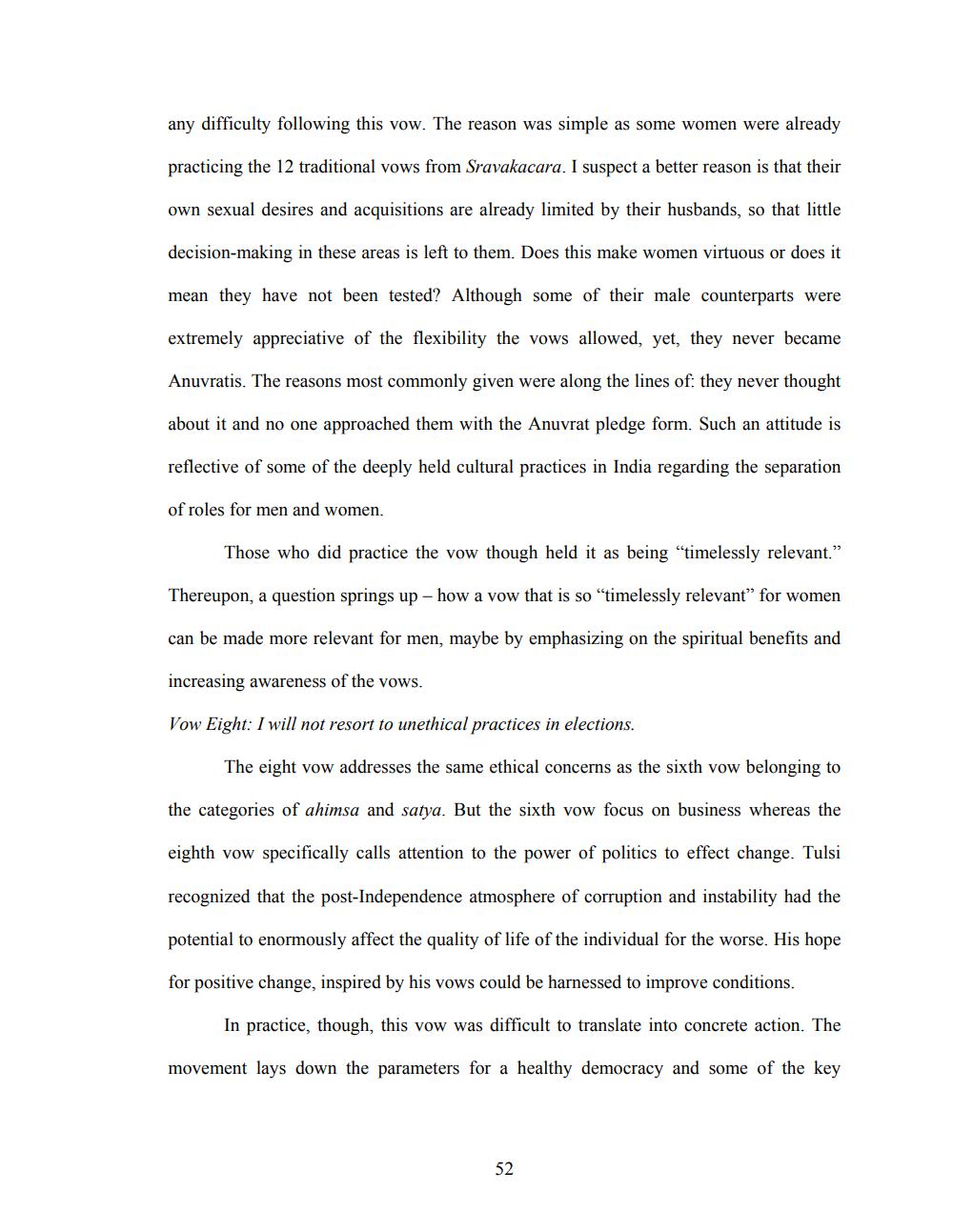________________
any difficulty following this vow. The reason was simple as some women were already
practicing the 12 traditional vows from Sravakacara. I suspect a better reason is that their
own sexual desires and acquisitions are already limited by their husbands, so that little
decision-making in these areas is left to them. Does this make women virtuous or does it
mean they have not been tested? Although some of their male counterparts were
extremely appreciative of the flexibility the vows allowed, yet, they never became
Anuvratis. The reasons most commonly given were along the lines of: they never thought
about it and no one approached them with the Anuvrat pledge form. Such an attitude is
reflective of some of the deeply held cultural practices in India regarding the separation
of roles for men and women.
Those who did practice the vow though held it as being "timelessly relevant."
Thereupon, a question springs up - how a vow that is so timelessly relevant” for women
can be made more relevant for men, maybe by emphasizing on the spiritual benefits and
increasing awareness of the vows.
Vow Eight: I will not resort to unethical practices in elections.
The eight vow addresses the same ethical concerns as the sixth vow belonging to
the categories of ahimsa and satya. But the sixth vow focus on business whereas the
eighth vow specifically calls attention to the power of politics to effect change. Tulsi
recognized that the post-Independence atmosphere of corruption and instability had the
potential to enormously affect the quality of life of the individual for the worse. His hope
for positive change, inspired by his vows could be harnessed to improve conditions.
In practice, though, this vow was difficult to translate into concrete action. The
movement lays down the parameters for a healthy democracy and some of the key
52




